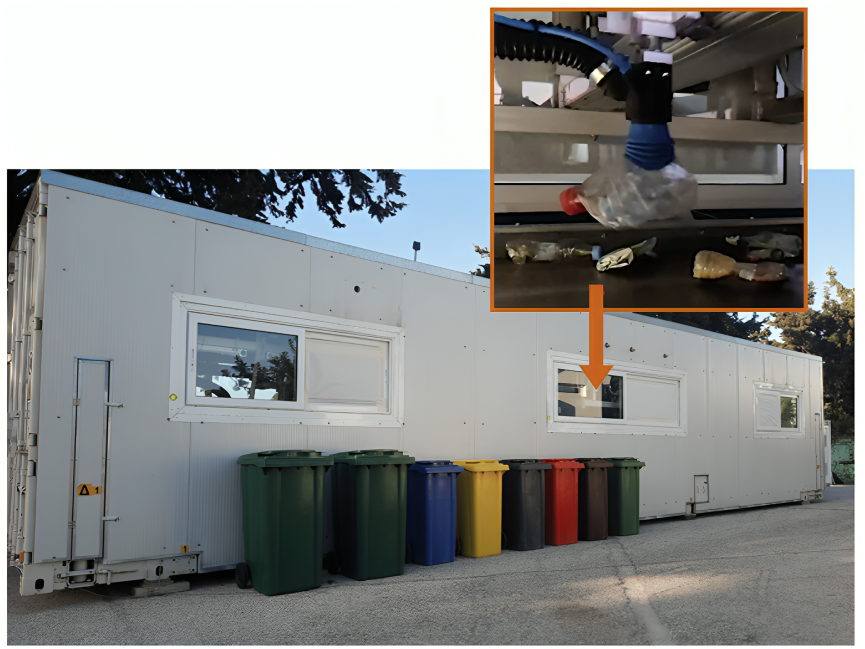The RECLAIM project, funded by the EU’s Horizon Europe program, aims to offer innovative solutions in the waste management industry in regions lacking material recovery facilities. By integrating cutting-edge AI, data, and robotic technologies, the project develops the first portable, robotic Material Recovery Facility (prMRF). This innovative solution enables material recovery in remote and geographically isolated areas that are not efficiently covered by current waste management models.
To create high-tech, distributed waste treatment prMRF-fleets capable of achieving full material recovery even in the most distant locations, RECLAIM has focused on developing low-cost, portable, containerized and easy-to-install MRF units with high material sorting capacity (Figure 1). The primary goal from the outset of the project was to design a prMRF suitable to be used by non-experts on robotics or AI, addressing the need for decentralized and effective material recovery in various scenarios.
Click here to read more on the material recovery scenarios that RECLAIM explores to maximise recycling
Many remote communities struggle with waste management due to their isolation, or the high-volume waste production in short-time. These include for instance:
- Small size islands and seasonally operated areas with limited access to waste collection, transportation, and recycling facilities. Meeting the recycling targets set by the European Union for municipal waste (55% by 2025 and 60% by 2030) is especially challenging in these areas.
- Company-towns created by companies to accommodate employees working in distant projects and villages located far from urban centers, which face difficulties in managing the waste produced by their residents.
- Numerous exhibition centers, festival locations and stadiums that regularly host large events where tons of waste are generated in a short time due to the high number of consumer visitors.
All the cases mentioned above can benefit from the portable, industrial-level material recovery capacity of RECLAIM’s prMRF, which incorporates state-of-the-art technologies to enhance waste management sustainability.

The cost of the installation is considered manageable, as it primarily covers the energy needs for the prMRF to be fully operational. Additionally, the extended operation of the prMRF for many years will further reduce the long-term impact of installation costs and promote the viability of local-scale material recovery.
By facilitating on-site recycling in remote and temporary settings, RECLAIM’s prMRF not only addresses immediate waste management challenges but also contributes to the broader goal of creating a sustainable, circular economy. This system exemplifies how innovative technology can bridge the gap between waste production and resource recovery, turning potential waste into valuable resources. The prMRF is more than a technological advancement; it is essential in developing a global, leakage-free circular economy model that will be highly beneficial to businesses, the environment, and the society.
You can also find this article on the AI on Demand platform